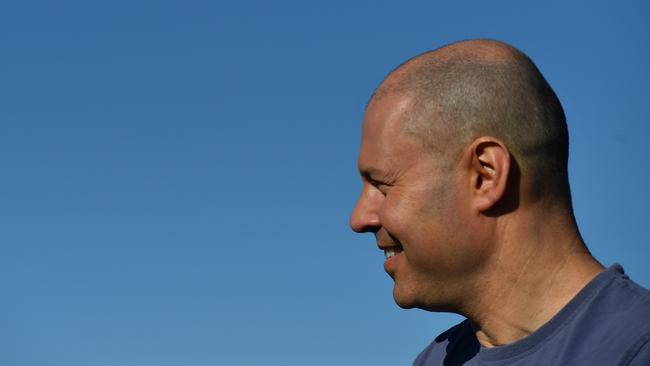
What kind of politician would resist spending some of that, given ultra-cheap borrowing costs and an election campaign expected within 12 months? Precisely.
It’s raining revenue, hallelujah, giving Josh Frydenberg cosmetic cover for the social spending splurge in Tuesday’s budget.
According to the independent Parliamentary Budget Office, booming iron ore exports have delivered a bumper company tax take over the March quarter, with the budget’s bottom line improving by $30bn since the mid-year economic and fiscal outlook in December.
Our largest companies are posting huge profit gains, albeit off the base of a miserable set of results a year ago. For the big four banks, cash profits rose on average by more than 60 per cent over the first half of the year.
Asset management giant Macquarie Group’s profit hit a record $3bn for the year to March.
Deloitte Access Economics budget maven Chris Richardson has calculated that this year and next, revenue will swell by almost $50bn more than forecast by Treasury in December. That expected windfall over two years is via company tax ($18.4bn) and income tax on individuals ($18.5bn), off the back of the surprisingly strong labour market revival.
The unemployment rate was 5.6 per cent in March, a measure taken ahead of the end of JobKeeper. Even so, forecasters continue to see robust employment gains. On Friday, the Reserve Bank flagged an unemployment rate of 5 per cent by December and 4.5 per cent by the end of next year.
With more people in work and fewer social restrictions in place, the central bank expects spending to switch from goods to services. As well, families are sitting on a mountain of hoarded cash.
“Strong household spending is expected to underpin GDP growth across the forecast period, supported by further lifting of activity restrictions, a stronger outlook for household disposable income, wealth effects from higher housing prices, and reduced uncertainty,” the RBA said in its statement on monetary policy.
Richardson estimates spending taxes, such as the GST and excises, will bring in $11bn more this year and next than the official estimates. Over the medium term, which involves even more crazy-brave figuring because of COVID-19, the Deloitte partner forecasts revenue will be $107bn more over the four-year period than what Treasury had pencilled in, with an erasure head to be sure, at MYEFO. So away we go on a social spending spree, with $10bn over four years for aged care, $1.7bn for childcare assistance, another $7bn tax break for low and middle earners, plus more money for housing, mental health and telehealth services.
The Treasurer is a Liberal. Obviously, a fourth term would give him a crack at a promotion. In Frydenberg’s DNA, there’s likely to be some fiscal conservative material, more Peter Costello, say, than Wayne Swan. And yet, a new analysis by former Treasury official Stephen Anthony finds structural deficits — baked-in fiscal trends, free of cyclical factors –— will average 3.8 per cent of GDP over the forward estimates period.
The chief economist at consultancy Macroeconomics says instead of banking surpluses, poor fiscal management and the pandemic leaves the federal budget position “extremely vulnerable to further fiscal slippage”.
Anthony sees “an air of unreality around the capacity of governments to continue to pump-prime economies without creating significant economic distortions”.
“At some point, the Treasurer or his successors will need to undertake a fiscal repair job that is comprehensive. Otherwise, it will not close the structural budget deficit which formed from the mid 2000s, as successive governments’ wasteful spending and tax cuts frittered away the windfall gains from the mining boom and subsequent housing boom.”
Can the iron ore price hold? Probably not. Will it keep raining revenue? Unlikely. Will wage growth come to the rescue and put an end to the great stagnation since 2012? Ditto. Yet fiscal repair is not Frydenberg’s immediate priority. His faith is fixing the economy will fix the budget.




Taxes on company profits and personal income are driving a revenue bonanza in Canberra.